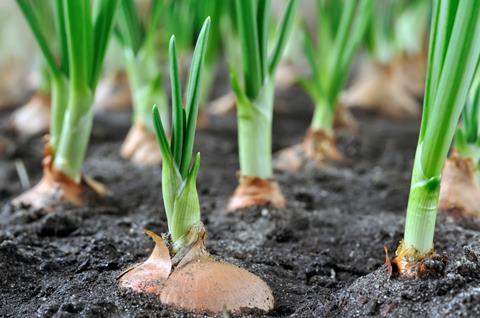The US$2.69mn commitment is part of a multi-phase strategy that will see the country become 30 per cent self-sufficient in onion production by 2030

The Malaysian government has committed RM12mn (US$2.69mn) to expand and modernise its onion supply chain in 2025, aiming to reduce the country’s reliance on imports, according to local daily The Star.
The department of agriculture director-general, Datuk Nor Sam Alwi told the publication the government aims to develop a sustainable onion industry that empowers local farmers and strengthens Malaysia’s agricultural sector.
“This fund will be allocated to develop infrastructure, including irrigation systems, storage and drying facilities that will support the entire onion supply chain,” she said.
“The fund will also be used to provide technical assistance, support and training or capacity building for farmers, ensuring they adopt the latest farming techniques and best practices.”
The initiative will, according to Nor Sam, help Malaysia lower its import dependence ratio (IDR), enhance the self-sufficiency rate (SSR) and improve food security, while also creating job opportunities.
“In the next few years, the government expects a substantial increase in local onion production, thereby boosting domestic supply and reducing imports,” she told The Star.
The funding comes as part of a multi-phase strategic plan which aims to obtain a 30 per cent SSR in onion production by 2030. The plan consists of three phases: seed development (2021-2030), pre-commercial scale (2024-2025) and commercial scale (2026-2030).
Under the pre-commercial phase, 26.55ha were developed for onion cultivation in 2024, with the government providing resources such as planting materials, technical training and marketing assistance to growers, establishing a foundation for future expansion.
The government is also promoting modern farming practices, including precision agriculture, mechanised planting techniques, automated irrigation systems and advanced post-harvest processing techniques.
Nor Sam said these innovations would help farmers to increase productivity, reduce post-harvest losses and yield high-quality produce, resulting in a more competitive onion supply chain.
“Seasonal variations, poor infrastructure and limited access to quality seeds have affected onion production,” she told The Star.
“Providing better infrastructure, improved irrigation systems, high-quality seeds alongside technical training for farmers are among the strategies designed to address these challenges.”
By 2030, the government aims to develop 1,347ha, with key locations including Kuala Bikam in Perak and the Agrofood Park (TKPM) Ara Kuda in Penang, producing over 14,000 tonnes of onions with a total investment of RM100mn (US$22.38).
This gradual approach aims to scale up production in strategic areas to meet Malaysia’s onion needs more sustainably, aligning with the government’s focus on building agricultural self-sufficiency.
Nor Sam said the initiative would strengthen Malaysia’s agricultural sector and uplift its local communities.
“We are laying the groundwork for a self-reliant future, where Malaysia can produce enough for its people and create sustainable growth for its farmers,” she said.
“This initiative aligns with the broader goal of strengthening Malaysia’s agricultural sector, making it more competitive and sustainable in the long term.”



